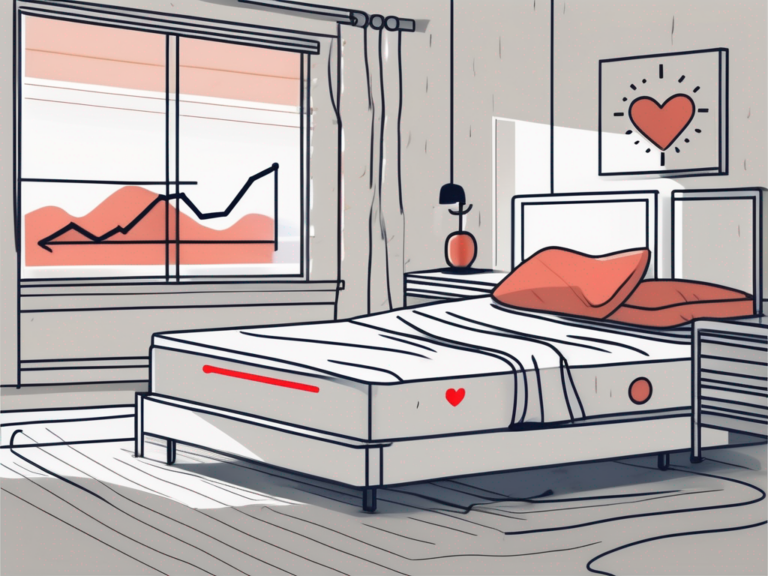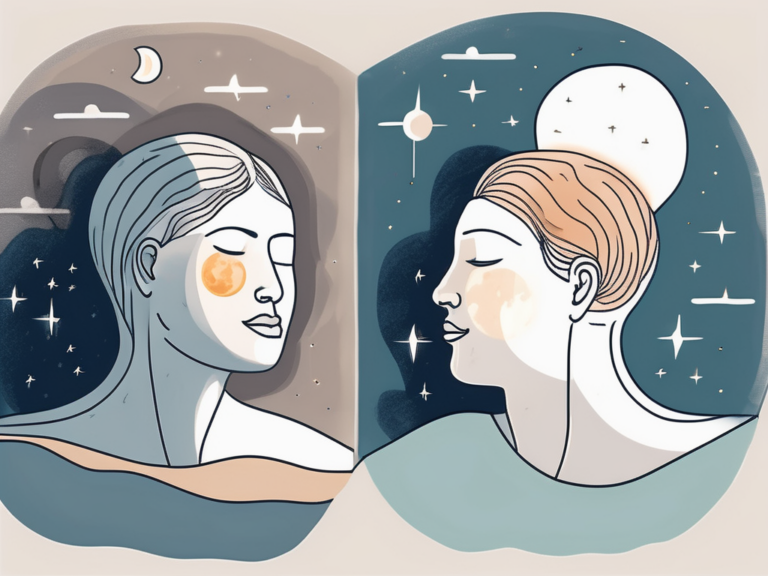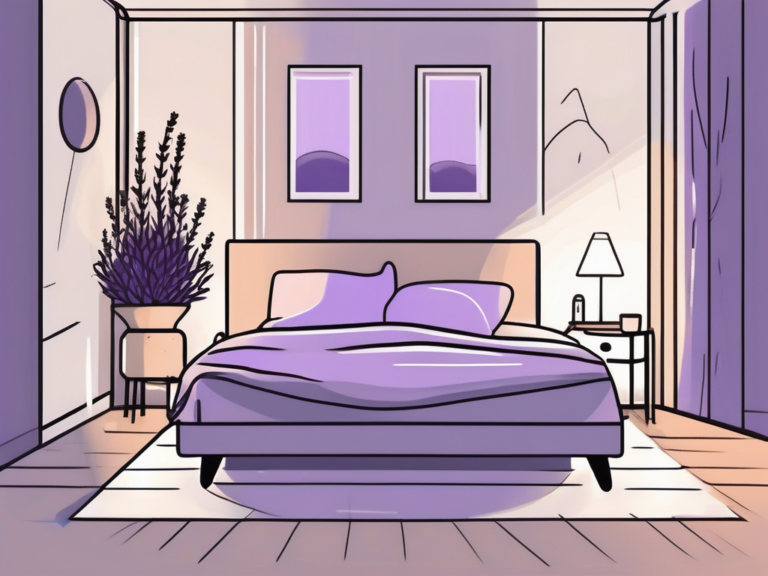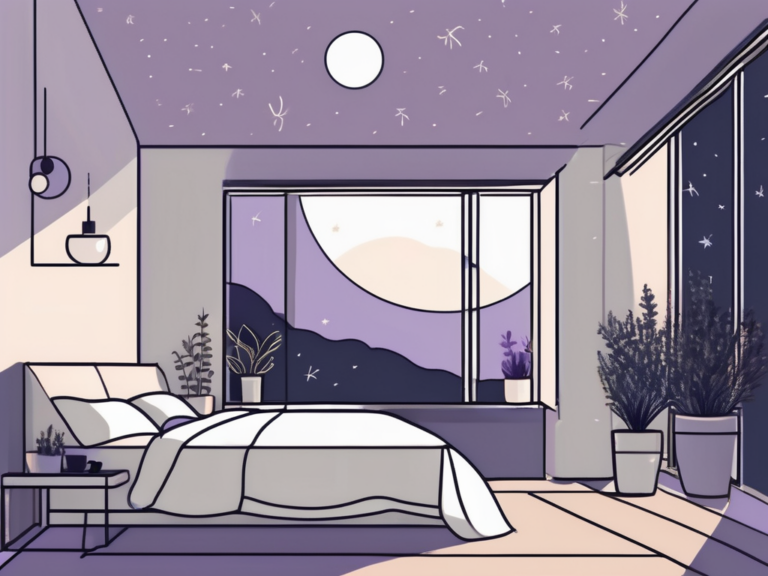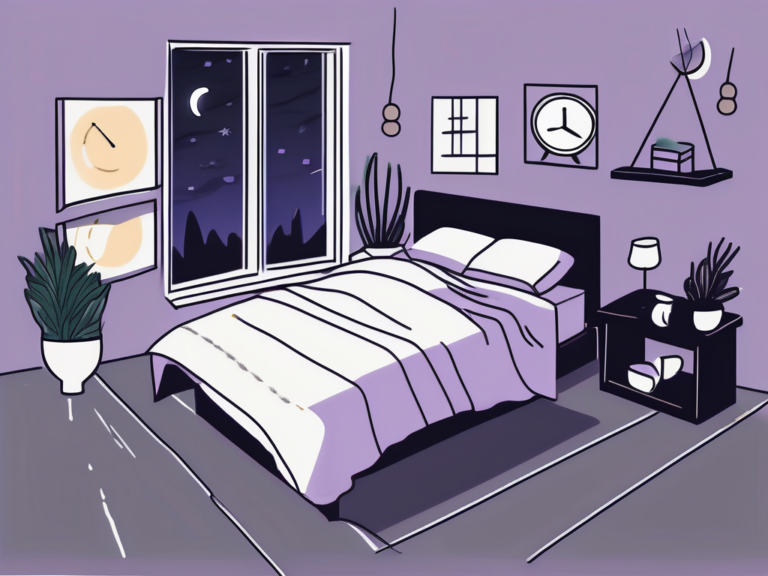Tips to Sleep When Anxious: A Comprehensive Guide
Anxiety can have a significant impact on our ability to sleep peacefully at night. The racing thoughts, physical tension, and constant worry make it challenging to relax our minds and bodies. However, there are several strategies and techniques that can help manage anxiety and promote better sleep. In this comprehensive guide, we will explore various approaches to overcome sleep disturbances caused by anxiety and create a peaceful bedtime routine.
Understanding Anxiety and Its Impact on Sleep
Anxiety is a common mental health condition characterized by excessive worry, fear, and apprehension. When anxiety seeps into our sleep routines, it can disrupt our ability to fall asleep, stay asleep, or experience restful slumber. The connection between anxiety and sleep disturbances is complex, with anxiety often leading to sleep problems, and lack of sleep exacerbating anxiety symptoms.
The Connection Between Anxiety and Insomnia
Insomnia, a common sleep disorder, often occurs alongside anxiety. When we feel anxious, our minds become hyperactive, dwelling on worries and concerns. This ruminating thought process can make it challenging to relax and let go of anxious thoughts when it’s time to sleep. Consequently, insomnia becomes a persistent companion, further intensifying our anxiety and perpetuating a vicious cycle.
How Anxiety Disrupts Your Sleep Cycle
Anxiety not only affects our ability to fall asleep but also disrupts the quality of our sleep. Rapid eye movement (REM) sleep, the stage of sleep when we dream and process emotions, is particularly affected by anxiety. Anxious individuals tend to experience shorter REM sleep cycles, leading to a reduced ability to regulate emotions and increased anxiety levels the next day.
Moreover, anxiety can cause physical symptoms that further interfere with sleep. For instance, individuals with anxiety may experience muscle tension, increased heart rate, and shallow breathing, making it difficult to relax and drift off into a peaceful slumber. These physical manifestations of anxiety can create a heightened state of arousal, making it challenging to achieve the deep sleep necessary for restorative rest.
Additionally, anxiety can lead to night sweats and nightmares, further disrupting sleep patterns. Night sweats, a common symptom of anxiety, can cause discomfort and awakenings throughout the night, leaving individuals feeling tired and drained the next day. Nightmares, often fueled by anxiety, can be vivid and distressing, causing individuals to wake up in a state of fear and unease.
The Importance of Good Sleep Hygiene
One of the most effective strategies for managing anxiety-related sleep disturbances is maintaining good sleep hygiene. Sleep hygiene refers to the habits and practices that promote healthy sleep. By adopting a consistent sleep schedule and creating a sleep-inducing environment, we can improve our chances of getting a good night’s rest.
The Role of a Consistent Sleep Schedule
A consistent sleep schedule can help regulate our body’s internal clock, also known as the circadian rhythm. Going to bed and waking up at the same time every day, even on weekends, helps synchronize our sleep-wake cycle, making it easier to fall asleep and wake up refreshed. Consistency signals our body when it’s time to wind down, signaling the release of sleep-inducing hormones like melatonin.
But why is a consistent sleep schedule so important? Well, our bodies thrive on routine. When we establish a regular sleep pattern, our brain and body become accustomed to it. This familiarity allows our body to anticipate sleep and prepare for it in advance. It’s like having a built-in alarm clock that gently nudges us towards bedtime and gently wakes us up in the morning.
Moreover, a consistent sleep schedule can have a positive impact on our overall health. It helps regulate various bodily functions, such as digestion, hormone production, and immune system activity. When our body knows when to expect sleep, it can allocate resources accordingly, ensuring optimal functioning during the day.
Creating a Sleep-Inducing Environment
Creating an environment that promotes sleep is essential for anxious individuals. Keep your bedroom cool, dark, and quiet to create an atmosphere conducive to sleep. Use blackout curtains or an eye mask to block out any external light. Consider using earplugs or a white noise machine to mask disruptive sounds that could hinder sleep. Additionally, invest in a comfortable mattress, pillow, and bedding to enhance physical relaxation.
But what are some other factors that can contribute to a sleep-inducing environment? Well, let’s talk about temperature. Research suggests that a slightly cooler room temperature, around 65 degrees Fahrenheit (18 degrees Celsius), can promote better sleep. This is because our body temperature naturally drops as we fall asleep, and a cooler room helps facilitate this process.
Furthermore, the quality of air in our bedroom can affect our sleep. Poor air quality can lead to discomfort and difficulty breathing, which can disrupt our sleep. To improve air quality, consider using an air purifier or opening a window to allow fresh air to circulate. Additionally, incorporating plants into your bedroom decor can help purify the air and create a calming atmosphere.
Creating a sleep-inducing environment also involves minimizing distractions. Keep electronic devices out of the bedroom or at least set them to “do not disturb” mode. The blue light emitted by screens can interfere with the production of melatonin, making it harder to fall asleep. Instead, engage in relaxing activities before bed, such as reading a book or practicing gentle stretching exercises.
By implementing these strategies and prioritizing good sleep hygiene, individuals can significantly improve their sleep quality and overall well-being. Remember, a good night’s rest is not just a luxury; it’s a necessity for our physical and mental health.
Relaxation Techniques for Better Sleep
Relaxation techniques can be highly effective in reducing anxiety and preparing the mind and body for sleep. Incorporating deep breathing exercises and progressive muscle relaxation into your bedtime routine can help calm the nervous system and promote relaxation.
When it comes to deep breathing exercises, there are various techniques you can try. One popular method is called “4-7-8 breathing.” This technique involves inhaling deeply through your nose for a count of 4, holding your breath for a count of 7, and then exhaling slowly through your mouth for a count of 8. This pattern helps slow down the heart rate and activate the body’s relaxation response, promoting a sense of calmness. Practice deep breathing exercises like the 4-7-8 technique before bed to unwind and quiet the mind, preparing yourself for restful sleep.
Deep Breathing Exercises for Sleep
Deep breathing exercises involve taking slow, deep breaths, focusing on inhaling and exhaling fully. This technique helps slow down the heart rate and activate the body’s relaxation response, promoting a sense of calmness. Practice deep breathing exercises before bed to unwind and quiet the mind, preparing yourself for restful sleep.
Another effective relaxation technique is progressive muscle relaxation. This technique involves systematically tensing and releasing different muscle groups in the body. By deliberately tensing and then relaxing each muscle group, starting from the toes and working your way up to the head, you can release physical tension and reduce overall anxiety. Not only does this technique help relax the body, but it also promotes a sense of mindfulness as you focus on the sensations in each muscle group. Practicing progressive muscle relaxation before bed can ease physical discomfort and promote relaxation conducive to sleep.
Progressive Muscle Relaxation Before Bed
Progressive muscle relaxation involves systematically tensing and releasing different muscle groups in the body. By deliberately tensing and then relaxing each muscle group, starting from the toes and working your way up to the head, you can release physical tension and reduce overall anxiety. Practicing this technique before bed can ease physical discomfort and promote relaxation conducive to sleep.
As you go through the process of progressive muscle relaxation, take the time to focus on each muscle group individually. Notice the sensation of tension as you tense the muscles and the feeling of release as you let go. This practice not only helps relax your body but also brings your attention to the present moment, allowing you to let go of any racing thoughts or worries that may be keeping you awake.
Remember, incorporating relaxation techniques into your bedtime routine can greatly improve the quality of your sleep. By taking the time to calm your mind and release physical tension, you create an environment that is conducive to a peaceful and restorative night’s sleep. So, give these techniques a try and experience the benefits of a well-rested mind and body.
Cognitive Behavioral Techniques for Sleep Anxiety
Cognitive-behavioral techniques are psychological strategies designed to change unhelpful thoughts and behaviors. These techniques can be highly effective in managing anxiety-related sleep disturbances by challenging negative thoughts and replacing them with more positive and realistic ones.
Challenging Negative Thoughts About Sleep
Anxious individuals often have distorted thoughts and beliefs about sleep, assuming the worst-case scenarios, such as never being able to fall asleep or being awake all night. Challenging these negative thoughts through techniques like cognitive restructuring can help reframe the mind’s perception of sleep and reduce anxiety surrounding it.
Visualization Techniques for Sleep Anxiety
Visualization involves creating mental images of calming and peaceful scenes. By picturing serene landscapes or engaging in guided imagery exercises, we can divert our focus from anxious thoughts and promote mental relaxation. Incorporating visualization techniques into a bedtime routine can help ease anxiety and improve the chances of falling into a restful sleep.
Another effective technique for managing sleep anxiety is progressive muscle relaxation. This technique involves tensing and then releasing different muscle groups in the body, promoting physical relaxation and reducing overall tension. By systematically tensing and relaxing muscles, individuals can experience a deep sense of relaxation, making it easier to drift off to sleep.
In addition to cognitive and physical techniques, establishing a consistent sleep routine can also be beneficial for managing sleep anxiety. Going to bed and waking up at the same time every day helps regulate the body’s internal clock and promotes better sleep quality. Creating a relaxing pre-sleep routine, such as taking a warm bath or reading a book, can signal to the body that it’s time to wind down and prepare for sleep.
Lifestyle Changes to Improve Sleep
In addition to relaxation techniques and cognitive-behavioral strategies, certain lifestyle changes can significantly improve sleep quality and help manage anxiety-related sleep disturbances.
The Impact of Diet and Exercise on Sleep
Consuming a well-balanced diet with adequate nutrients and vitamins can positively impact sleep quality. Avoid consuming large meals close to bedtime and limit caffeine intake, as they can interfere with falling asleep. Engaging in regular exercise, preferably during the daytime, increases sleep drive and promotes more restful sleep. However, avoid exercising too close to bedtime, as it can cause alertness and make falling asleep challenging.
When it comes to diet, incorporating specific foods into your meals can also aid in improving sleep. Foods rich in tryptophan, such as turkey, chicken, and nuts, can help increase the production of serotonin, a neurotransmitter that promotes relaxation and sleep. Additionally, including complex carbohydrates like whole grains and legumes in your diet can enhance the production of melatonin, a hormone that regulates sleep-wake cycles.
Limiting Caffeine and Alcohol for Better Sleep
Caffeine and alcohol can significantly disrupt sleep patterns, especially in anxious individuals. While caffeine acts as a stimulant, interfering with the ability to fall asleep, alcohol initially acts as a sedative but can disrupt the later stages of sleep. Limit your consumption of caffeinated beverages and avoid consuming alcohol close to bedtime to optimize sleep quality and reduce anxiety-related sleep disturbances.
It’s important to note that not all beverages contain the same amount of caffeine. For example, while a cup of coffee typically contains around 95 milligrams of caffeine, a cup of tea only contains about 47 milligrams. Being aware of the caffeine content in different drinks can help you make informed choices and better manage your sleep schedule.
When to Seek Professional Help
While the strategies mentioned above can be effective for managing anxiety-related sleep disturbances, there may be instances when professional help is necessary.
Recognizing When Anxiety and Sleep Issues Need Medical Attention
If anxiety-related sleep disturbances persist despite incorporating self-help strategies, it may be beneficial to seek help from a mental health professional. They can assess your situation, provide a proper diagnosis, and recommend evidence-based treatments, such as therapy or medication, to manage anxiety and promote better sleep.
Types of Professionals Who Can Help with Sleep Anxiety
Several professionals specialize in addressing sleep issues related to anxiety, including psychologists, psychiatrists, and sleep medicine specialists. These experts can provide targeted interventions tailored to your specific needs and help you develop effective coping strategies to improve both your sleep and anxiety levels.
Psychologists are trained in understanding the complex relationship between anxiety and sleep. They can help you explore the underlying causes of your anxiety and develop personalized strategies to manage it. Through various therapeutic techniques, such as cognitive-behavioral therapy (CBT), they can assist you in challenging negative thought patterns and developing healthier sleep habits.
On the other hand, psychiatrists are medical doctors who specialize in mental health disorders. They can prescribe medications, such as anti-anxiety or sleep aids, if necessary. By closely monitoring your symptoms and adjusting medication dosages as needed, psychiatrists can play a crucial role in managing anxiety-related sleep disturbances.
Sleep medicine specialists are experts in diagnosing and treating sleep disorders. They can conduct comprehensive sleep evaluations, including overnight sleep studies, to assess your sleep patterns and identify any underlying issues contributing to your anxiety-related sleep disturbances. Based on their findings, they can recommend specific treatments, such as continuous positive airway pressure (CPAP) therapy for sleep apnea or behavioral therapies for insomnia.
By understanding the connection between anxiety and sleep, adopting good sleep hygiene practices, implementing relaxation techniques, making lifestyle changes, and seeking professional help when needed, you can effectively manage anxiety-related sleep disturbances and improve the quality of your sleep. Remember, everyone is unique, so experimenting with different approaches may be necessary to find the strategies that work best for you. With time and practice, restful sleep becomes achievable, allowing you to wake up refreshed and ready to face the day ahead.

